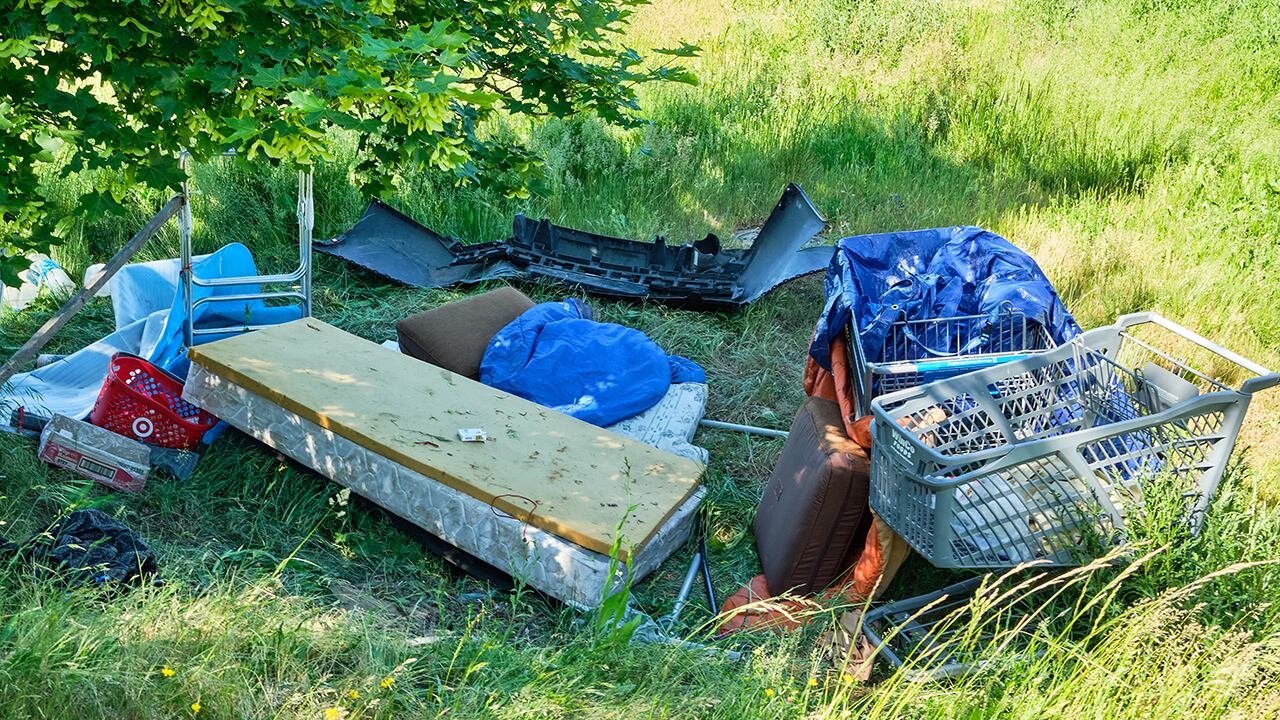Four unhoused people filed a class action lawsuit against the city of Portland on Monday, asking a judge to block implementation of the city’s newly released guidelines for camp sweeps.
The lawsuit, filed in Multnomah County Circuit Court, demands the city “cease enforcement” of the guidelines, which were released last week and approved unanimously by city commissioners until they are “no longer ambiguous, arbitrary and unlawful.”
The guidelines lay out new criteria for what warrants a sweep at a camp: the presence of eight or more structures, biohazardous waste, untreated sewage, obstruction of a public sidewalk, bus station, building entrance or walking path, and credible reports of criminal behavior as verified by law enforcement.
The attempt to halt the new protocols is part of a class action lawsuit alleging that city contractors routinely discarded houseless people’s personal possessions without making them readily available to persons from whom they were taken.
One of the plaintiffs, Mark Usher, said in the lawsuit that contractors making a sweep in February took a pair of gloves he had found the day before that helped relieve his hand inflammation, and he couldn’t find them.
Steven Black, another plaintiff, alleges city contractors performing a sweep last spring took his tent, bike, clothes, sleeping bag and utility wagon to a storage warehouse. When he went to the warehouse the next day, he alleges, city contractors told him his possessions had already been claimed by someone else.
The plaintiffs allege the city has failed to follow Oregon laws for seizing and storing personal belongings during sweeps.
The lawsuit was first reported by OPB this morning.
“During these sweeps, the City, through its contractors, has systematically failed to comply with [the law] by failing to make property taken from the plaintiffs reasonably available to them for 30 days, and by discarding property taken from the plaintiffs that was neither useless nor insanitary,” the lawsuit alleges.
The lawsuit, filed by Portland attorneys Michael Fuller, Juan Chavez of the Oregon Justice Resource Center and Kelly Donovan Jones, makes it clear that the suit doesn’t aim to change standing laws surrounding sweeps; rather, it asks the city to comply with state laws that are already in place.
Fuller tells WW it’s “undisputed that the city is not following this law. It may be intentional, but it may just be ignorance….I don’t know if it’s an intentional failure or they just don’t have policy procedures.”
Fuller says when a sweep is conducted, all possessions are thrown into a warehouse and displaced people are told to come “rummage through it.” Often, Fuller says, people will go to collect their stuff and it will no longer be there, or they can’t find it, or they’re told someone else walked off with it already.
“The City does not deny that its contractors systematically ignored the requirements of [the law] with respect to plaintiffs in the past,” the lawsuit alleges, “nor has the City confirmed that it has adopted adequate policies and procedures to stop its contractors from continuing.”
Last week, the city released fresh protocols for camp sweeps, greatly expanding the criteria for conditions that warrant a sweep. The new guidelines, set by the Homeless and Urban Camping Impact Reduction Program, the team that conducts sweeps, were signed off on by the mayor and all four city commissioners. However, in the days following the new protocols, WW learned that some commissioners were hesitant about the details of the new protocols—or did not think they would necessarily result in an increase in sweeps.
A spokesman for the mayor’s office declined to comment. “The city doesn’t comment on pending litigation,” he said.

